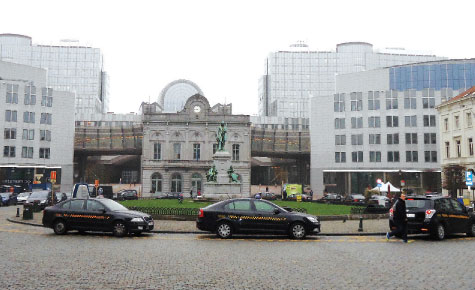×
The Standard e-Paper
Fearless, Trusted News
 |
| The Luxembourg Square round about, which is popular for after work meetings place in Brussels. (Photo:Luke Anami/Standard) |
Brussels serves as the capital city of the European Union. With more than 200,000 foreigners making up the ‘international community’, it’s one of the most racial tolerant cities, writes LUKE ANAMI
Brussels, the capital city of Belgium, is not an ordinary city for first comers and my preparations had to be thorough, notwithstanding that it was the last days of winter season in Europe.